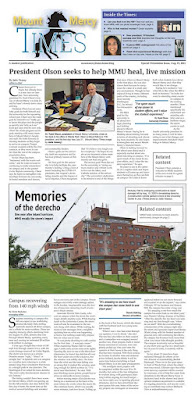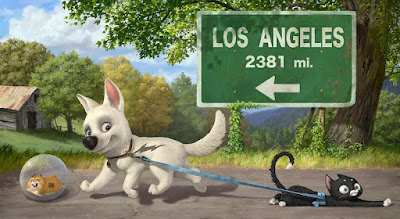 |
Delivered papers around campus Wednesday morning--first edition of MMU campus newspaper of the year. Looking forward to having a work study student do this!
|
After two decades, it is apparent that the Afghan military we built to hold the country together was unwilling to resist an Afghan extremist faction taking over Afghanistan. I’m no expert in either military strategy nor in foreign policy, but this does not make President Biden look good.
Nor, to be fair, does it make the younger President Bush look good. Nor Obama. Nor Trump. Two decades of no end point were not enough for us to achieve the impossible goals that we never articulated anyway—although there is also a saying that Afghanistan is where empires go to die. Just ask the British or the Union of Soviet Socialist Republics.
Bad as it is to walk away from 20 years of money, sweat and death, the comparison with Vietnam ignores how much bigger an impact that conflict had on America. We lost almost 2,500 American service people in Afghanistan. Tragic as that is, about 17,000 American service people died in 1968 alone in Vietnam, and in the decade that we were engaged in combat there, well over 50,000 American souls were sacrificed.
In both wars, the people of the country where the battles took place paid a much higher price than we did in lives and destruction, something we ought not forget, either. And, as a wiseass man once said, one of the great lessons of history is: “Never get involved in a land war in Asia.” See “The Princess Bride.”
Anyway, to me, the decline of the Pax Americana is only tangentially related to Afghanistan. What we face, more fundamentally, is a crisis of discourse—a tendency to ignore unpleasant facts that don’t coincide with our point of view. We have culturally long downplayed the value of education, and now we’re reaping the rewards of a post-literate culture.
What we have here is a failure to communicate. (Too many movie references, sorry. Thank you, “Cool Hand Luke.”)
And it partly is a result of the decline of the American newspaper. In pre-social media days, Walter Cronkite would report the news to America—and CBS in that era was often influenced by sources like The New York Times or The Washington Post. It was the Post that pursued the Watergate scandal, and CBS that eventually started to pick up the story, too.
Well, I don’t want to be a Luddite. The cortex (a “Firefly” reference, what a great name for the internet) may spread lies too quickly, but it does open the world to many more voices. What’s wrong is that the audience isn’t doing well in knowing which of those voices to listen to. In ancient history (say, the 1990s) there was a vibrant newspaper industry that served as the information algae of the media ocean. And today, that medium is in rapid retreat. The base of the info food chain is drying up. A general economic crisis more than a decade ago knocked the newspaper business model off kilter, and the days when the Penny Press model worked are not coming back.
There are recent signs of that decline in my corner of the world. The Marion Times, a weekly paper that served the largest suburb of Cedar Rapids ceased publication this summer. The Gazette is now that community’s primary newspaper news source. And The Gazette is in decline, too. This summer, delivery of the paper to my house became sketchier, as the paper shifted to “driveway” delivery, which will be fun to cope with this winter.
And more recently and importantly, the paper decided to shut down its press. Mary Sharp wrote a long and interesting feature on the move, see link earlier in this paragraph.
Despite owning several daily papers, The Gazette’s local parent company apparently can’t keep that giant, expensive machinery going, and our paper will now be printed by The Register in Des Moines
 |
Why the neighborhood gets to see me in my PJs, paper on the driveway. The horror.
|
And so, it goes. The world turns.
Not all the media trends today are negative. The New York Times recently reported it has reached a subscription level of 8 million. I’m sure that rating number would embarrass Tucker Carlson, but still, old school journalism is, for some players, growing—at least online.
Online—the Wild West. As Americans, we can’t even agree that Joe Biden won the 2020 election, although it’s clear he did. Some significant portion of our population would rather listen to its own crazy echo chamber than tune into the factual universe. Rachel Maddox calls it Earth 2, and it is Earth 2 that is causing America to lost its spirit.
At the university where I teach, my student editor wrote a column in the first edition of the student newspaper this year stating that Mount Mercy University is lucky to still have a print paper.
She’s right, although we’re also trying to transition to be a more online source. The problem is, once online, will any students pay attention to us?
 |
Special early issue of MMU Times paper.
|
Of course, do they pay attention to us now? It’s a bit depressing how “reading” has become so old school among young adults who aspire to be college educated.
Post-literate. Not illiterate, just too busy, too amused, too self-indulgent to bother.
But there is hope. Even if it is the world where a jackass like Tucker Carlson shouts anti-Cronkite nonsense in too many ears, there are 8 million New York Times subscribers and growing. And it was a student, a young American adult, who recognized the value of what a little newspaper on a little campus contributed to that campus culture.
 |
Editor of MMU Times making mages for the issue of the paper that came out this week.
|
Just today, I received a sweet message from a former student. I had posted on Facebook (the modern town square) that I was distributing the first edition of the school paper, and she let me know how much the paper meant to her while she as in school.
This is what she wrote:
Hey Joe!
I was thinking yesterday while doing real estate photos how much the newspaper and you believing in me helped me be able to do this job 🙂 I have social anxiety that was way worse in college. But having events to go to, having friends on the newspaper really helped me face that fear. Just wanted to say thank you 😊 Hope you’re well!
I am well, thank you. I think I would feel more well if I felt a bit better about the state of our democracy. Seeing Afghanistan collapse didn’t feel good—but it’s not the heart of our darkness.





